#Carl von Clausewitz
Note
What was Napoleon's favorite battle tactic?
There are many encyclopedic analyses of this very question, but all those thousands of pages distill down to one thing- He had his people shoot the other people until he won. The only time he lost, it was because his people didn't shoot the other people enough. Thus, the only important factor of strategy and tactics is to shoot the other people until you win.
Clausewitz and Liddell Hart can suck it.
180 notes
·
View notes
Text
Bonus Round: Best General
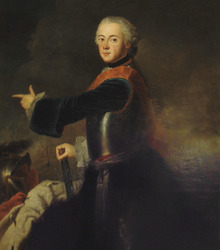

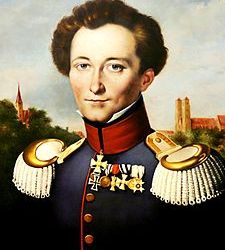
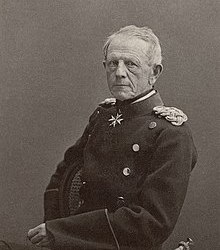
Prince Heinrich of Prussia (1726–1802)
Prinz Heinrich prominently served as a general during the Seven Year's War. What contemporaries and historians alike have found so impressive about his leadership was that he made so few, if any, blunders in carrying out the war. This was a sentiment echoed by his brother, Frederick the Great, who absorbs much of the credit by osmosis. His victories and maneuvers allowed his brother to carry on a war that the prince would have preferred to be ended sooner than 1756. Outside of war, he is his own colorful character, in line with that generation of Hohenzollern men and women.
Gebhard Leberecht von Blücher (1742-1819)
What hot blooded Prussian does not know the name Blücher? It is he we have to thank for the defeat of the villain Napoleon - not once, but twice! The first great defeat at Leipzig restored Prussia to her place of due prominence among the nations of Europe. At Waterloo, he and his troops arrived as Wellington's guardian angels to defeat the Corsican devil. The main army battered, the reserves shunted away, Blücher became an immortal hero to all who opposed shrimpy French tyranny.
Carl von Clausewitz (1780-1831)
Clausewitz's greatest achievement is his book Vom Krieg (On War), a tome that rewrote the rules of conflict for a post Napoleonic age. Among many of the revolutionary ideas contained with in it, a few to highlight are the "fog of war", the concept of friction and the idea of a military genius.
Helmuth von Moltke the Elder (1800-1891)
As Chief of the Prussian General Staff, Moltke worked hand in hand with War Minister von Roon to deliver three swift victories for the Prussian state. It was his genius on display during Königgratz, during Sedan and Metz and Gravelotte. Without him, Prussia's ascendancy and Germany's unification would not have been possible.
Moltke understood that with the growing size of modern armies, generalship such as that underneath Napoleon or Blücher was unfeasible. Instead of a general leading his army as a whole, Motlke devised a corp system wherein smaller clusters of troops would move independently of each other — Theodor, get your hands off of me!
#hohenzollern bracket#bonus round#prince henry of prussia#prinz heinrich von preussen#gebhard von blücher#carl von clausewitz#moltke the elder#staffer theodor#staffer leopold
27 notes
·
View notes
Note
Do you think there is a root in the difference between the western and eastern military thinking that's coming from the differences between the jominian and clausewitzian approach and is what we see now in ukraine clearly showing which one tends to come out on top? Apart from the rampant corruption that is and perhaps the lack of high moral that is crucial to the former? How do you think it would turn out if not for the weaknesses of R? Is it better for the kind of war we see here?
I think the primary differences from Jomini and Clausewitz come from their experiences in the military profession. Clausewitz saw battle in Prussia early and so was consumed with the experiences of the war that tended toward psychological, because that's what he experienced moving up the ranks - the pressures both internal and external, to include political meddling and the necessity for military and political leadership to establish campaign objectives. Jomini's taste of war started from the Swiss Ministry of War, where his writings were picked up on by Ney and recruited him as a staff officer. Jomini's writings are more prescriptive and geometric, focusing on the tactical because he saw war primarily from the lens of a staff officer attempting to successfully deduce the correct, logical way to conduct their battles and secure victory. Now, this doesn't mean that Jomini was only focused on maps and units, he devoted plenty of time to logistics, the necessity of supply, and the benefit of internal lines.
I don't think of Jominian and Clauswitzian approaches as mutually exclusive, they can inform the other. We can see poor performance in Russia explained by both Jominian (poor employment of tactics, poor methods of supply) and Clausewitzian (rampant political interference creating a military climate that discourages innovation and initiative, systematic incompetence due to corruption, supreme hubris on the part of command staff) terms.
Thanks for the question, Santa.
SomethingLikeALawyer, Hand of the King
9 notes
·
View notes
Photo
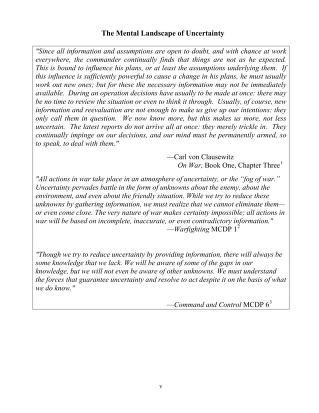
https://archive.org/details/DTIC_ADA600617/mode/2up
4 notes
·
View notes
Text
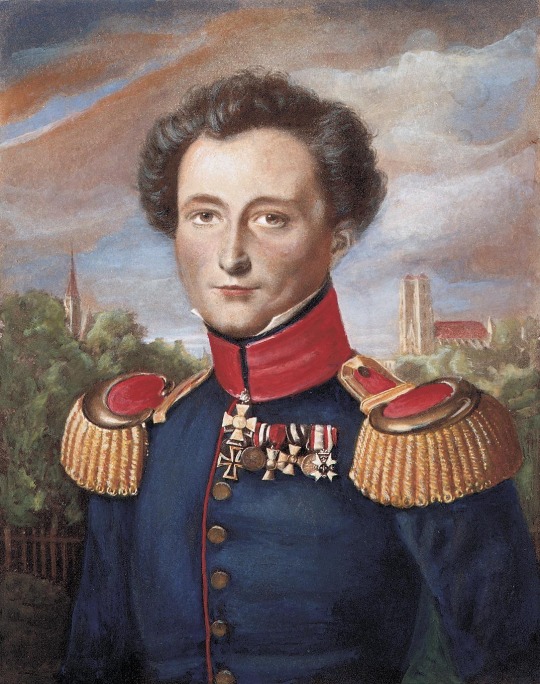
With uncertainty on one scale, courage and self-confidence must be thrown into the other to correct the balance.
— Carl Von Clausewitz
7 notes
·
View notes
Text
Review: On War - by Carl von Clausewitz
Review: On War – by Carl von Clausewitz
In addition to Sun Tzu’s Art of War, this book authored by Prussian officer Carl von Clausewitz is the quintessential classic book on military theory. The book (although this edition was only an abridged version) puts forward in detail theory for all elements of war, from politics to military leadership, from defence to attack. It cites examples from military history with a special favouritism…

View On WordPress
#art of war#Carl von Clausewitz#classic#clausewitz#F/rench Revolution#france#Frederick the Great#Grande Armée#military#military theory#Moscow#Napoleon#Napoleon Bonaparte#on war#politics#russia#sun tzu#war#warfare
3 notes
·
View notes
Text
"War is merely the continuation of policy by other means."
Carl von Clausewitz, general and military theorist (1 June 1780-1831)
2 notes
·
View notes
Text
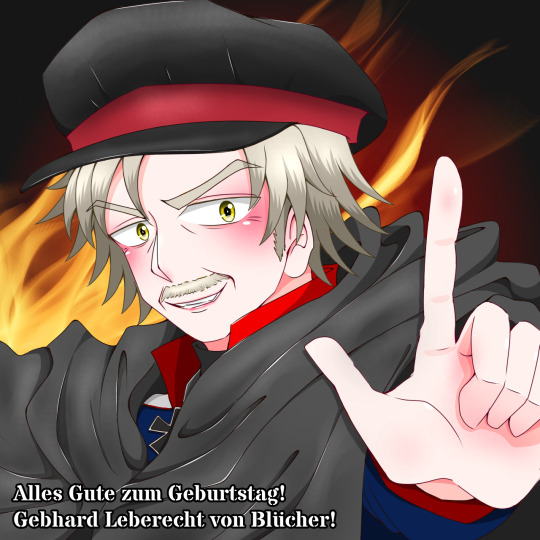
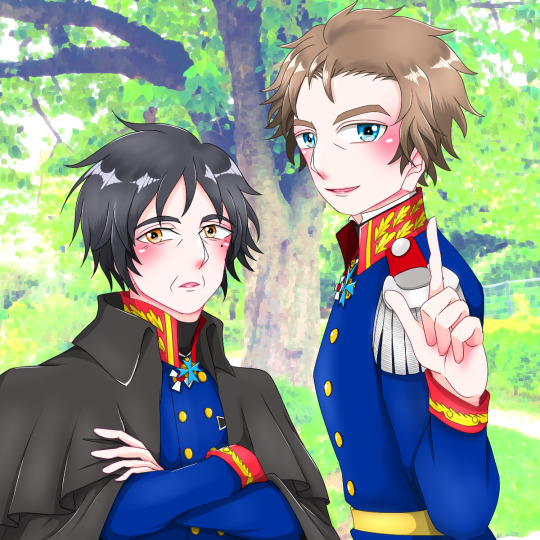
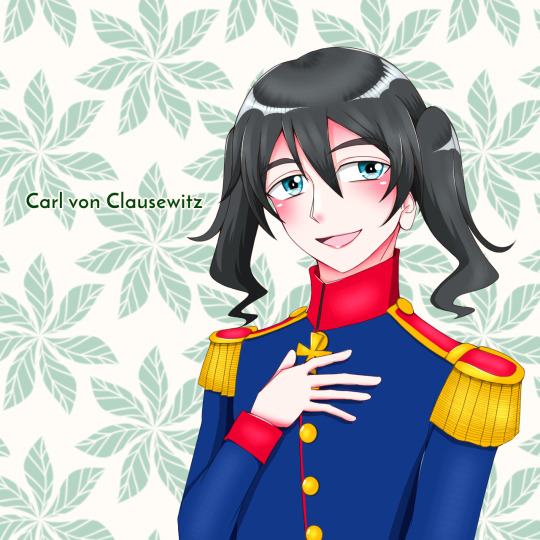

(Past illust)Prussia!!!
#歴史創作#my art#napoleonic#Kingdom of Prussia#Gebhard Leberecht von Blücher#Gerhard von Scharnhorst#August Neidhardt von Gneisenau#Carl von Clausewitz#Ludwig Adolf Wilhelm von Lützow
6 notes
·
View notes
Text

Go on. Say "Hello".
This topic engages with preventative or pre-emptive action, often discussed in the realms of political philosophy, ethics, and even warfare.
1. The Ethics of Pre-emptive Action:
John Stuart Mill’s utilitarian philosophy, which advocates for actions that maximize happiness or minimize suffering for the greatest number, can be applied here. From a utilitarian perspective, dealing with enemies before they grow too strong could be justified if it prevents greater harm in the long run. However, this approach raises significant ethical dilemmas about the consequences of actions and the moral responsibility for potential harm caused in the process of pre-emptive measures.
2. Kantian Ethics and Universal Morality:
Contrasting with utilitarianism, Immanuel Kant’s deontological ethics focus on the inherent morality of actions, irrespective of their consequences. Kantian ethics, with its emphasis on universal moral laws and the categorical imperative, would likely challenge the morality of pre-emptive action against an enemy, particularly if such actions violate principles that should be universally upheld, such as the respect for autonomy and the prohibition of harm.
3. The Realpolitik Perspective:
The concept of realpolitik, associated with political theorists like Niccolò Machiavelli and Carl von Clausewitz, emphasizes pragmatic and strategic action in statecraft, often disregarding moral or ethical considerations. From this viewpoint, dealing with an emerging threat early on can be seen as a necessary and pragmatic approach to ensure state security and power. Machiavelli’s advice on the ruthless acquisition and maintenance of power in “The Prince” can be interpreted as supporting pre-emptive actions against potential threats.
4. Hobbesian State of Nature and Self-Preservation:
Thomas Hobbes, in his depiction of the natural state of humans as 'solitary, poor, nasty, brutish, and short', advocated for a strong central authority to prevent the chaos of constant conflict. Hobbes’ perspective might support the idea of dealing with enemies early as a form of self-preservation, necessary to maintain order and prevent the descent into a war of all against all.
5. Sun Tzu and the Art of War:
Sun Tzu, in “The Art of War,” emphasizes the importance of strategy and knowing one’s enemy. He advocates for winning battles with minimal conflict, suggesting that the best victory is one that is achieved without fighting. From this perspective, dealing with potential threats before they become too powerful aligns with the strategic approach of managing conflict efficiently and proactively.
6. The Just War Theory:
The Just War theory, with contributions from philosophers like Augustine of Hippo and Thomas Aquinas, offers criteria for when it is just to go to war. One of the key principles is the concept of a just cause - which could potentially include pre-emptive or preventative actions against a threat. However, this theory also stresses proportionality and last resort, raising questions about the justification and extent of pre-emptive actions.
In summary, the philosophical argument for dealing with enemies before they become too strong is multifaceted, drawing from a spectrum of ethical, political, and strategic doctrines. While utilitarianism and realpolitik might support pre-emptive actions for the greater good or pragmatic reasons, Kantian ethics and Just War theory would call for careful moral consideration of such actions. The diverse perspectives of Hobbes, Sun Tzu, and others enrich this complex debate, highlighting the tension between ethical principles, self-preservation, and strategic necessity in addressing potential threats.
#Just War Theory#Augustine of Hippo#Thomas Aquinas#Sun Tzu#Immanuel Kant#AI#realpolitik#thomas hobbes#Niccolò Machiavelli#Carl von Clausewitz#John Stuart Mill
0 notes
Quote
Sebbene l’intelligenza si senta costantemente attratta verso la chiarezza e la certezza, è l’incerto che attrae spesso il nostro spirito.
Carl Von Clausewitz
0 notes
Photo
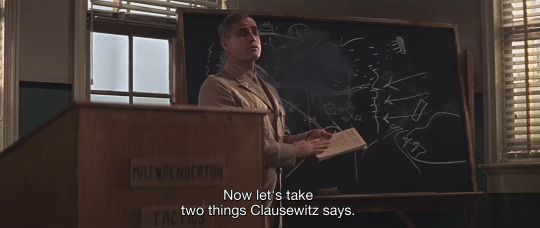
Reflections in a Golden Eye (John Huston, 1967).
0 notes
Text
Mayans M.C. 5x02: "Lord Help My Poor Soul"
Mayans M.C.
5×02: “Lord Help My Poor Soul”
Directed by Brett Dos Santos
Written by Jenny Lynn
* For a recap & review of the Season 5 premiere, click here.
* For a recap & review of 5×03, click here.
A girl sings the Mexican folk song “La Llorona” while working in the fields, as Adelita watches nearby before taking off in a vehicle. Adelita isn’t exactly enjoying working for Soledad. At the…

View On WordPress
#Carl von Clausewitz#Cartel#Heroin#Inland Empire#Iron War#La Llorona#Mercenary#Miguel Alvarez#Santo Padre
0 notes
Link
Any Russian invasion of Ukraine was long expected to play out as a kind of postmodern war, defined by 21st-century weapons like media manipulation, battlefield-clouding disinformation, cyberattacks, false flag operations and unmarked fighters.
Such elements have featured in this war. But it is traditional 20th-century dynamics that have instead dominated: shifting battle lines of tanks and troops; urban assaults; struggles over air supremacy and over supply lines; and mass mobilization of troops and of weapons production.
The war’s contours, now nearly a year into the fighting, resemble not so much those of any future war but rather those of a certain sort of conflict from decades past: namely, wars fought between nations in which one does not outright conquer the other.
Such conflicts have grown rarer in the period since 1945, an era often associated more with civil wars, insurgencies and American invasions that have quickly shifted to occupation.
But wars between nations have continued: between Israel and Arab states, Iran and Iraq, Armenia and Azerbaijan, India and Pakistan, Ethiopia and Eritrea. These are the conflicts that military historians and analysts, when asked to draw parallels with the Russian war in Ukraine, tend to cite.
“You have these big commonalities. In Korea, for example,” Sergey Radchenko, a Johns Hopkins University historian, said, referring to the Korean War. “Big conventional battles. Bombardment of infrastructure.”
Every war is unique. But certain trends that have played out across this subset of conflicts, including in Ukraine, may help to shed light on what drives week-to-week fighting, what tends to determine victory or failure and how such wars typically end — or don’t.
One after another, Dr. Radchenko said, such wars have started over fundamental territorial disputes that date back to the warring countries’ founding and are therefore baked into both sides’ very conception of their national identities. This makes the underlying conflict so difficult to resolve that fighting often recurs repeatedly over many decades.
Those wars have often turned, perhaps more than any other factor, on industrial attrition, as each side strains to maintain the flow of matériel like tanks and antiaircraft munitions that keep it in the fight.
But this works very differently from the competition over raw manpower that defined conflicts like World War I, touching more on matters of technology, economic capacity and international diplomacy.
#current events#history#military history#warfare#philosophy of war#russo-ukrainian war#2022 russian invasion of ukraine#korean war#iran-iraq war#breakup of yugoslavia#yom kippur war#ukraine#russia#carl von clausewitz
0 notes
Note
So; although they lived in two very different countries at two very different periods in history, are there any points of war in their respective books that that Carl von Clausewitz and Sun Tzu agreed upon?
Not only are they different countries with different histories, they are also writing about different levels of war. Clausewitz was writing largely on the tactical level while Sun Tzu was incorporating grand strategy. Clausewitz and Sun Tzu spoke of the symbiotic relationship of war and politics, the infamous "war is the continuation of politics by other means." For Clausewitz, government formed one element of the paradoxical trinity, and must be held in balance with the military and the people. For Sun Tzu, he speaks of the "Moral Law" or "The Way," the people living in accord with the sovereign.
Similarly, both men recognized the inherent value of defense. Compare Sun Tzu's: "those who are not able to win must defend; those who are able to win must attack; defend when forces and resources are inadequate; attack when forces and resources are more than abundant" and his maxim that "we may avoid defeat, but victory rests within the hands of the enemy." Sun Tzu advises that finding victory is a matter of exploiting enemy mistakes and striking enemy vulnerabilities. Sounds an awful lot like Clausewitz: "When one has used defensive measures successfully, a more favourable balance of strength is usually created; thus the natural course in war is to begin defensively and end by attacking."
Also, both men inherently recognized the chaos of a battlefield and the need to remain flexible. Sun Tzu: "Do not repeat the tactics which have gained you one victory, but let your methods be regulated by the infinite variety of circumstances" and Clausewitz's conception of friction, by which the simple was made difficult and prevented the utility of grand, overarching plans which would not be deviated from.
The two men differ greatly on a lot of things, but there are some similarities.
Thanks for the question, Anon.
SomethingLikeALawyer, Hand of the King
17 notes
·
View notes
Text
【淇園漫步】德防長換人 福兮禍兮?
18、19世紀普魯士的名將及軍事家克勞塞維茨(Carl Philipp Gottfried von Clausewitz…

View On WordPress
0 notes
Text
Krieg kennt keine Sieger, jeder militärische Triumph erweist sich in Wahrheit als Niederlage aller Beteiligten.
War knows no winners; every military triumph actually turns out to be a defeat for all involved.
Carl Philipp Gottlieb von Clausewitz (1780 – 1831), Prussian general, army reformer, and military theorist
36 notes
·
View notes